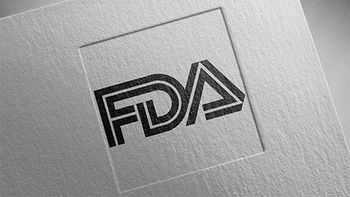
- Pharmaceutical Commerce - March/April 2012
USP ventures into standards for supply chain integrity
National organization proposes a draft standard; will hold workship in May
The US Pharmacopeia the private non-profit that has legal status as a federal standards-setting body, has proposed a new standard, <1083> Good Distribution Practices—Supply Chain Integrity, which it says will be part of "the series of information chapters describing various aspects of the pharmaceutical supply chain." One previous chapter, <1079> Good Storage and Shipping Practices, is in review status within the organization.
To further discussion and standards development for <1083>, USP is holding an industry workshop on May 22-23 at its Rockville, MD, headquarters; details are available at www.usp.org. The
Layered security
"Supply chain integrity" as USP defines it, is mostly focused on counterfeiting and theft. The customary concepts of layered security, along with serialization and tracking software, is described and recommended for securing products in the supply chain. The document notes the difference between authenticating a product (by checking its serial code against a master list), and a track-and-trace system that records each movement along a supply chain, but does not recommend one method over the other.
Meanwhile, a section on RFID tags revives an old bugaboo about the use of radio-frequency energy around fragile biopharmaceuticals—that the energy could affect those molecules’ efficacy. Numerous studies have shown no effect, but the standard says "It is too early to extend these limited results to all biopharmaceuticals, and analysts should study the effects of electromagnetic radiation on these products before using RFID tags on their primary packaging." It goes on to suggest acceptable testing parameters.
Another section provides some recommended features and practices for logistics systems (warehouses and vehicles) to counter cargo theft and other interferences with pharmaceutical distribution.
Finally, a section makes reference to rogue Internet pharmacies, and the risks they represent for selling adulterated product, or selling product without the intervention of a prescribing physician. The Verified Internet Pharmacy Practice Sites (VIPPS) program of the National Assn. of Boards of Pharmacy (NABP) is mentioned, along with a recommendation that Internet search engine companies police their databases to prevent their advertising via these search engines, and that payment processors (credit card companies) prohibit transactions involving counterfeit products.
<1083> is certainly a good start at establishing more-secure pharma supply chains; but, like much of the debate about national pedigree rules or anti-counterfeiting, it leaves unsaid who will take enforcement responsibility, or who will be held accountable for mishaps.
Articles in this issue
over 13 years ago
A conversation with Jeffrey Berkowitz, Walgreensalmost 14 years ago
Storing controlled substances safely and efficientlyalmost 14 years ago
Bringing room-temperature pharma shipping under the 'CRT' umbrellaalmost 14 years ago
Biosimilars take a big step toward the marketplacealmost 14 years ago
Adding rigor to the adverse event reporting processalmost 14 years ago
Supply chain issues for 2012almost 14 years ago
Cancer care in the US -- looking back, looking forwardalmost 14 years ago
A conversation with Chris Smith, H. D. Smithalmost 14 years ago
McKesson deepens ownership in Canadian retail pharmacyNewsletter
Stay ahead in the life sciences industry with Pharmaceutical Commerce, the latest news, trends, and strategies in drug distribution, commercialization, and market access.




